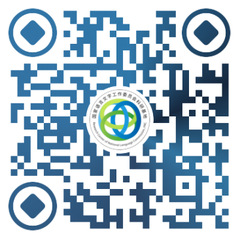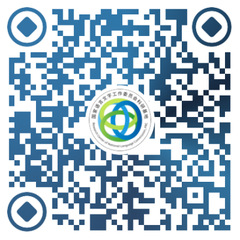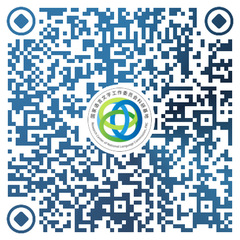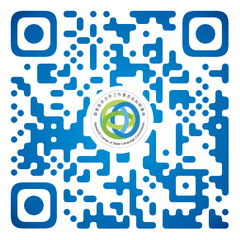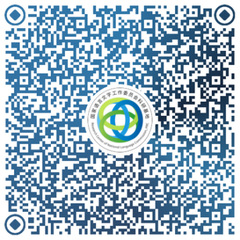DEADLINE FOR PROPOSAL SUBMISSION
AUGUST 21, 2013
Click here to submit your proposal.
Please note: you will be prompted to log in to access the proposal system. If you are not a member or previous proposal submitter, please click here to create a guest account. If you have an account but need to retrieve your password, please click here to reset it (note: you will need your username).
The 2014 conference of the American Association for Applied Linguistics (AAAL) will be held March 22-25 at the Marriott Downtown Waterfront in Portland, OR. Nationally and internationally, the AAAL conference has a reputation as a comprehensive and stimulating conference including in-depth colloquia and paper sessions, topical and thought-provoking plenary presentations, excellent book exhibits, and plentiful opportunities for networking. We hope you will consider sharing your work at AAAL 2014.
Plenary Speakers
William Germano, Cooper Union for the Advancement of Science and Art, Does writing still matter?
Marianne Gullberg, Lund University, Bimodal language acquisition and bilingualism: The gestural challenge
Kenneth Hyltenstam, Stockholm University, Age, aptitude and nativelike ultimate attainment in two languages
Claire Kramsch, UC Berkeley, Between the local and the global: Foreign languages in the crossfire
John McWhorter, Columbia University, A broken piano making pretty music is still broken: Convincing the public that nonstandard speech isn’t substandard
Alison Wray, Cardiff University, Applying linguistics in Alzheimer’s communication research
Invited Colloquia
Why materiality matters? Language and social inequality in the new economy
Organizers: Monica Heller, University of Toronto, and Sari Pietikäinen, University of Jyväskylä
Current trends and new directions in narrative analysis
Organizers: Michael Bamberg, Clark University, and Anna De Fina, Georgetown University
From universality to variability in second language development
Organizers: Kees De Bot, University of Groningen, and Diane Larsen-Freeman, University of Michigan
Language Learning Roundtable: Thinking for speaking in L2 and the limits of brain plasticity
Organizer: Aneta Pavlenko, Temple University
Publishing in applied linguistics: A forum on innovation and challenges in a changing world
Organizers: Heidi Byrnes, Georgetown University, and Emily Farrell, Mouton De Gruyter
Negotiating the complexities of multilingual assessment
Organizers: Kate Menken, Queens College, CUNY, and Elana Shohamy, Tel Aviv University
Wilga Rivers Pedagogy Colloquium: Implications of globalization for new directions in language teaching: What role for applied linguistics?
Organizers: Terry Wiley and Meg Malone, Center for Applied Linguistics
STRANDS
Proposals are welcome in all of the following topic strands:
- Analysis of Discourse and Interaction
- Assessment and Evaluation
- Bilingual, Immersion, Heritage, and Minority Education
- Corpus Linguistics
- Educational Linguistics
- Language and Cognition
- Language and Ideology
- Language and Technology
- Language Planning and Policy
- Language, Culture and Socialization
- Pragmatics
- Reading, Writing, and Literacy
- Second and Foreign Language Pedagogy
- Second Language Acquisition, Language Acquisition, and Attrition
- Sociolinguistics
- Text Analysis (Written Discourse)
PROPOSALS
Proposals are invited for individual papers, posters, roundtable sessions and colloquia.
• INDIVIDUAL PAPERS: Papers are formal presentations on original research by one or more authors within a thirty-minute period, including time for discussion. Paper presentations will be organized into sessions of 2-3 papers. Presenters within a session will be responsible for chairing the session together. The presenters may decide to co-chair the entire session together or otherwise coordinate who will chair each particular presentation within a session.
• POSTERS: Posters are for one-on-one discussion of research. Posters are especially effective for presenting results of empirical research if data can be presented visually (e.g. charts, graphs, tables). A block of time will be designated when presenters are available to discuss their posters. Prospective presenters are encouraged to consider posters because of the opportunity they provide for inclusion of more presenters and topics in the program and for extended discussion with other researchers.
• ROUNDTABLE SESSIONS: Roundtable sessions are a new format for the AAAL conference. Roundtable sessions present an opportunity for informal, more in-depth discussions between presenters and attendees on a specific topic. They are particularly well suited for works-in-progress and not meant for formal paper presentations. Roundtable sessions are 65-minutes long and will be held in a large room with several sessions taking place at the same time at different tables. Each table will be organized by strand. Two to three presenters will be assigned to a table and each table may seat up to twelve attendees. Each roundtable presenter will spend no longer than 8 minutes speaking on his/her topic. The purpose is not to present on a finished project but rather to address a topic in such a way as to engender whole group discussion.
Presenters will deliver their talks in turn, after which they will engage in extended discussion with the other attendees at the table. The advantage of roundtable sessions is that they allow for stimulating conversations and networking opportunities among participants on shared research interests. There will be no roundtable session chairs. Presenters at a table will be responsible for facilitating the session together.
• COLLOQUIA: Colloquia allow for extended discussion on a particular topic. They are presented in two different blocks of time: 1 hour and 40 minutes or 3 hours. Colloquium organizers must designate the specific time block for the proposed colloquium. Because the purpose of this format is to foster dialogue among attendees, time should be allocated for extended audience discussion of the papers presented. Colloquium organizers serve as the liaison between participants in the colloquium and the program committee, and are therefore responsible for communication among these participants.
AV EQUIPMENT: Please note that AV equipment will not be available for Posters or Roundtable Sessions. Presenters may bring handouts or use their laptops if they wish. However, be advised that the computers will have to operate on battery as there will be no outlets.
EVALUATION OF PROPOSALS
Proposals for individual papers, posters and roundtable sessions are evaluated by a team of reviewers according to each of the following categories:
- Appropriateness and significance of the topic/issue/problem
- Expectation of original research
- Research design if an empirical study, including clearly stated questions, data sources, data collection procedures, and analytic approach
- Conceptual framework if a conceptual study, including integration of topic into current thinking, clear exposition of treatment of topic and contributions to the literature
- Manner of presentation (indicative of a clear and well-organized presentation)
Proposals for roundtable sessions will also be evaluated for each of the following categories:
- Clarity of objectives and intended outcomes of the session
- Methods planned to engage participants
Proposals for colloquia will also be evaluated for each of the following categories:
- Appropriateness and significance of the topic
- Presentation of original and on-going research studies OR differing or dissenting perspectives on an important issue
- Coherence and complementarity of the papers
- Manner of presentation (clearly indicated schedule of activity, with significant amount of time allocated for discussion of the presentations and audience participation).
- Please note that, if accepted, the schedule of activity including the order of presentations will appear as proposed in the conference program.
AAAL CONFERENCE PRESENTATION POLICIES
- AAAL stipulates that individuals may submit a maximum of one abstract as first author, whether a paper, a poster, a roundtable session, or as part of a colloquium. First authors are expected to present the research bearing their name, but all authors are encouraged to share in the presentation of co-authored research. An individual may appear as a first author only once on the program, in addition to a possible role as a colloquium organizer, discussant, or co-author/co-presenter of another paper.
- AAAL assumes that all proposals (for individual papers, posters, roundtable sessions, and colloquia) represent original and unpublished work that is not yet available to the AAAL membership (with the exception of material from publications in press).
- AAAL discourages submission of proposals from individuals who will not be attending the conference. Conference attendees highly value the discussion period at the conclusion of conference sessions; substitute readers are disadvantaged in discussing papers that are not their own.
- AAAL requests that presenters who know that they cannot attend the conference withdraw their proposals and give another presenter a place on the program. If unforeseen circumstances at the last minute dictate that a presenter cannot attend the conference, a substitute will be permitted.
- AAAL policy stipulates that the author’s confirmation of attendance and presentation signifies that the author will present the paper on the day and time assigned by the conference program committee.
PROFESSIONAL SERVICE SESSIONS
To arrange informal meetings for those who wish to get together to discuss particular topics, please contact the AAAL 2014 Conference Chair. Such sessions include meetings with journal editors on how to get published, editorial board meetings, and
other networking opportunities. Efforts will be made to find a time and space for the meeting. Please submit these requests no later than August 21, 2013.
CONFERENCE CHAIR
Aneta Pavlenko
Temple University
conference@aaal.org
LOCAL CHAIRS
Lynn Santelman and John Hellermann
Portland State University



